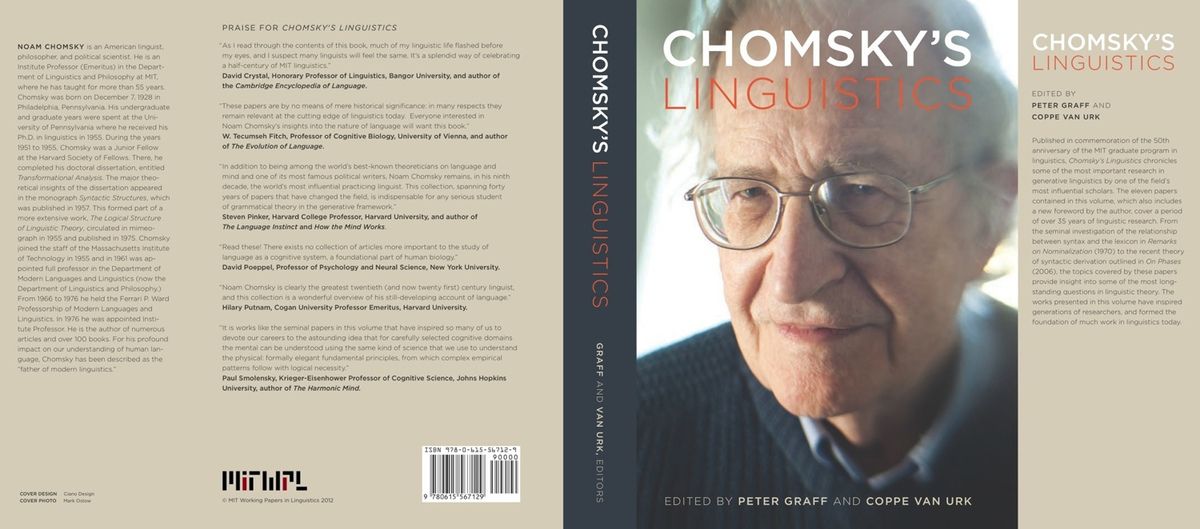Noam Chomsky is an American linguist, philosopher, and political scientist. He is an Institute Professor (Emeritus) in the Department of Linguistics and Philosophy at MIT, where he has taught for more than 55 years. He was born on December 7, 1928 in Philadelphia, Pennsylvania. His undergraduate and graduate years were spent at the University of Pennsylvania where he received his Ph.D. in linguistics in 1955. During the years 1951 to 1955, Chomsky was a Junior Fellow at the Harvard Society of Fellows. There, he completed his doctoral dissertation, entitled "Transformational Analysis." The major theoretical insights of the dissertation appeared in the monograph Syntactic Structures, which was published in 1957. This formed part of a more extensive work, The Logical Structure of Linguistic Theory, circulated in mimeograph in 1955 and published in 1975. Chomsky joined the staff of the Massachusetts Institute of Technology in 1955 and in 1961 was appointed full professor in the Department of Modern Languages and Linguistics (now the Department of Linguistics and Philosophy.) From 1966 to 1976 he held the Ferrari P. Ward Professorship of Modern Languages and Linguistics. In 1976 he was appointed Institute Professor. He is the author of numerous articles and over 100 books. For his profound impact on our understanding of human language, Chomsky has been described as the "father of modern linguistics".
Undoubtedly, Chomsky's most notable contribution to linguistics, the scientific study of language, were the notions of generative grammar and Universal Grammar. Generative grammars provide a set of rules that can accurately predict which combinations of words are able to make all of the possibly infinite grammatically correct sentences of a language, and rule out all the ungrammatical sentences. Chomsky contended, contra the radical Behaviorism of Skinner, that given the near infinite number of possible well-formed combinations of words in a given language, it would be impossible for a child to learn them through rote memorization. Instead, he proposed that all languages share common underlying principles which vary in systematic ways from language to language. Humans, he claimed, have a language faculty hardwired in the brain making us tacitly aware of these principles. Thus, to learn a language is too learn how that language implements the underlying principles of all languages

/image%2F1716376%2F20150711%2Fob_6f892d_11182202-458280657678871-4802756302673.jpg)
